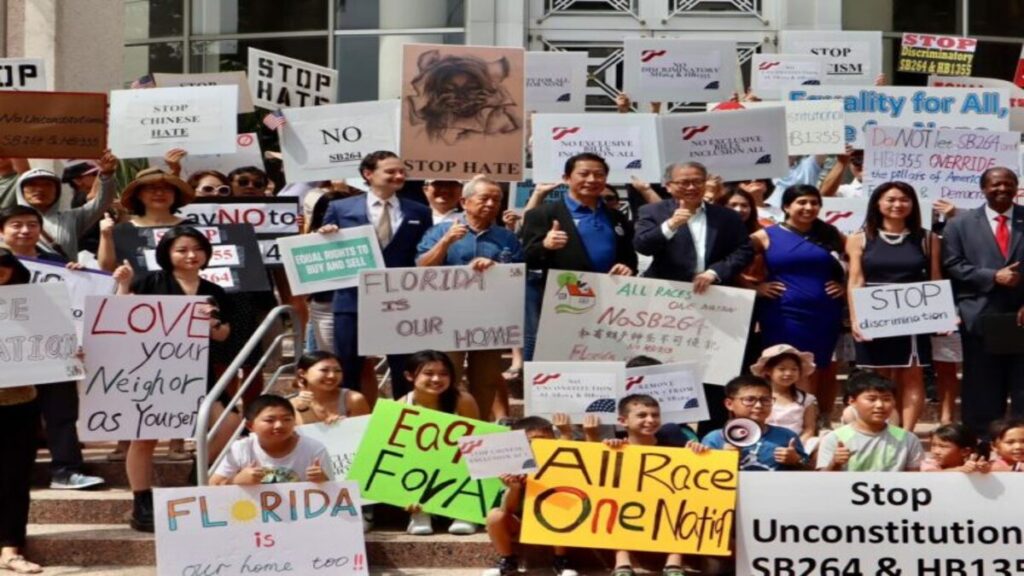
A federal appeals court in Atlanta temporarily blocked a controversial Florida law restricting Chinese citizens from purchasing land following a lawsuit filed by two Chinese immigrants represented by the American Civil Liberties Union (ACLU). The law, signed by Governor Ron DeSantis in May 2023, faced criticism for its alleged discriminatory nature.
The 11th Circuit Court of Appeals ruled in favor of the plaintiffs, acknowledging their substantial likelihood of success in proving that the law violates the Fourteenth Amendment’s protection against discrimination. Judge Nancy Abudu, appointed by President Joe Biden, stated that the law constitutes a blanket ban on Chinese non-citizens from buying land in Florida.
While the court did not entirely block the law, it granted an injunction for two plaintiffs who feared being forced to cancel contracts to buy homes. The decision was based on the imminent risk of irreparable harm to the plaintiffs if the law were enforced.
Governor DeSantis, who championed the law during his presidential campaign, criticized the Biden administration for supporting the plaintiffs. His deputy press secretary, Julia Friedland, expressed disagreement with the court’s decision, emphasizing that the law remains in effect and the state will continue to defend it.
ALSO READ: U.S. Officials Claim Chinese Hacking Operation Against Infrastructure Threatens American Lives
The ACLU hailed the court’s decision as a victory against discriminatory housing laws. Senior staff attorney Ashley Gorski stated that the decision brings relief to the plaintiffs and reaffirms the unconstitutionality of Florida’s housing law.
The law prohibits Chinese individuals domiciled in China and not lawful U.S. residents from owning more than a single parcel of two acres of land within five miles of a military installation. It also imposes restrictions on agricultural land ownership for individuals from China and six other countries considered hostile.
POLL—Is Systemic Racism a Significant Problem That Requires Reform in Policing and Other Areas?
The U.S. Department of Justice filed a statement of interest in the case in June, arguing that the law violates federal law and the U.S. Constitution. The DOJ contended that the provisions would cause harm based on national origin and undermine constitutional rights without advancing public safety.
This ruling is the latest development in the legal battle over Florida’s housing law. Previously, U.S. District Judge Allen Winsor ruled that the challengers had not shown intentional discrimination by the Legislature.
ALSO READ: Massachusett Officials Convert Recreational Complex to Shelter to House Migrants
Bethany Li, legal director of the Asian American Legal Defense and Education Fund, emphasized that the law violates the equal protection clause of the U.S. Constitution and warned against passing similar discriminatory legislation. She urged progress in passing laws that protect all communities rather than reviving outdated laws from the past.
YOU MIGHT ALSO LIKE:
Northern California Police Arrest 14-Year-Old Boy in Connection to High School Shooting
Southern California Residents Raise Alarm Over Foul Smell Escaping From Landfill
Gallery Manager Fears Picasso, Rembrandt, and Goya Works Lost in Seattle Art Gallery Fire
For the First Time Ever, this Group of Fossil Fuel Workers Will Transition Into Renewable Energy
Texas-Based Baby Clothing Company Comes Under Fire for Denying Mom’s Remote Work Request
